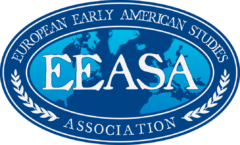UC Berkeley, October 10-13, 2022
The Pacific Regional Office of the German Historical Institute Washington DC (GHI PRO) invites proposals for papers to be presented at the sixth Bucerius Young Scholars Forum, which will be held at UC Berkeley, October 10–13, 2022. We seek proposals from post-doctoral scholars, recent PhDs, as well as those in the final stages of their dissertations with a background in history and/or related fields.
The Bucerius Young Scholars Forum, funded by the ZEIT-Stiftung Ebelin und Gerd Bucerius, is an annual program designed to bring together a transatlantic group of ten scholars based in Germany, Europe, North America, and beyond to explore new research in the history of migration.
We call for empirically rich contributions on the history of internal migrations at the intersection of migration studies and the history of knowledge. While historical scholarship has often focused on examples of “immigration” and “emigration,” internal migration (both voluntary and forced) has been shaping the political, social, and cultural history of nation-states and empires since pre-modern times. We define internal migrations as movements of people that do not involve crossing external political borders. Although it has been challenging to track migration within independent political entities, movements of people toward urban centers, from city to countryside, or processes of internal colonization and mass deportation have left deep traces in the history of many states and societies. As a focus for addressing this broad thematic field, we propose the interrelationship between the history of internal migration and the history of knowledge.
The category of knowledge plays an eminently important role in internal migration processes. We can, for example, ask about the information needs of modern state authorities who want to monitor and control complex social processes within their own borders. In addition, the topic offers great potential about the science of migration and colonization that emerged in the 19th century. Finally, knowledge about possible migration destinations and the prospect of starting a new life upon arrival is also of central importance for migrants themselves. Migrants often turn into migration experts: They produce, contest, and deploy political, cultural, legal, or economic knowledge about their everyday lives. How was knowledge generated, categorized, and communicated in each case? We want to discuss these questions with a view to different historical case studies. We will focus on the history of the 19th and 20th centuries. However, contributions to the history of the early modern period or from related disciplines (such as art history, sociology, political science, cultural studies, and literature) are also welcome.
The Bucerius Young Scholars Forum approaches its annual theme from a trans-epochal, transregional, or interdisciplinary perspective, seeking to consider categories such as religion, class, race/ethnicity, gender, and age/generation. With its focus on the intersection of migration and knowledge, the forum encourages applications from junior scholars in history, the social sciences, political sciences, anthropology, geography, as well as area studies and other related fields.
Papers will be precirculated to allow maximum time for peers and invited senior scholars to engage in discussions on the state of the field. The workshop language will be English. The organizers will cover basic expenses for travel and accommodation. The forum will be hosted by Sören Urbansky (GHI PRO) and Frithjof Benjamin Schenk (University of Basel).
If invited to the workshop, you will have the opportunity to extend your stay in Berkeley (by up to two weeks) through the California Archive Research Award (CARA). CARA funds can be used to explore the internationally renowned research resources in the San Francisco Bay Area. These include, for example, the Bancroft Library at UC Berkeley, the Hoover Archives at Stanford University, and the National Archives in San Bruno. Please indicate in the online application form if you would like to be considered for CARA. We will award the additional funding for up to two applicants.
Please upload a brief CV and a proposal of no more than 750 words by February 28, 2022, to our online portal.
Please contact Heike Friedman if you have problems with submitting your information online. Successful applicants will be notified in April 2022.
Contact Info: Heike Friedman
Pacific Regional Office of the German Historical Institute Washington
University of California Berkeley, CA 94720-2316
Contact Email: friedman@ghi-dc.org

